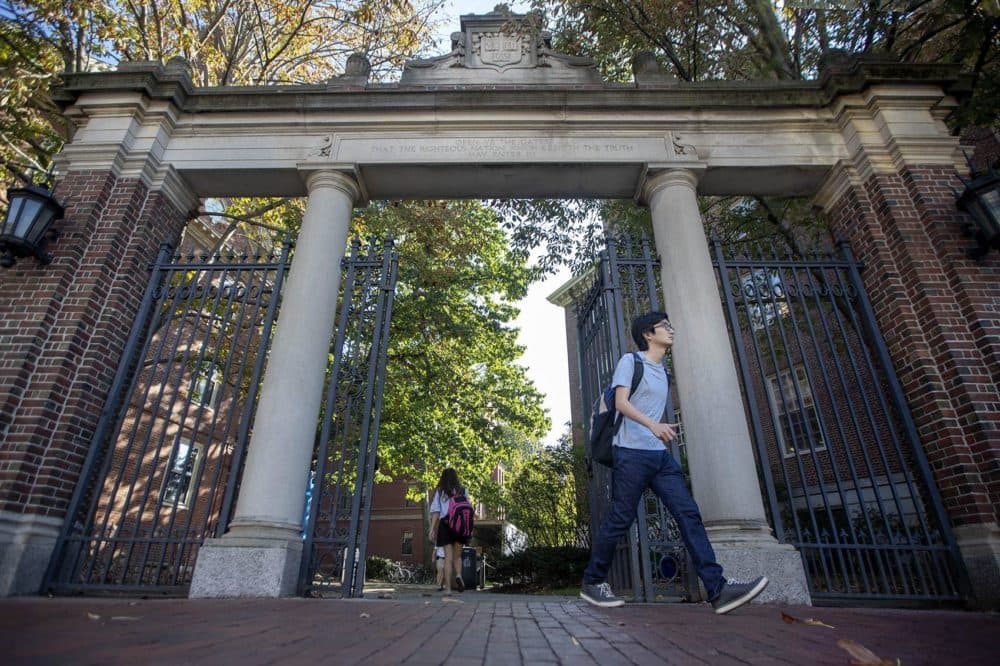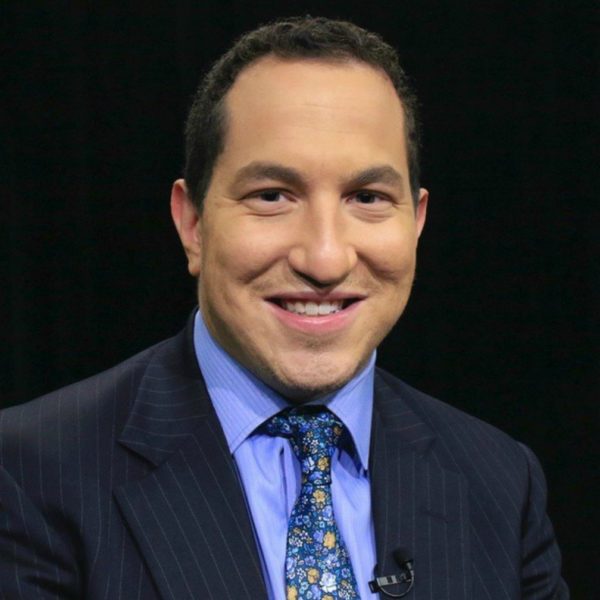Advertisement
commentary
The Conscience Of Harvard

Today’s political climate is challenging institutions of higher education to define their values. Our president is a predatory bigot. From racist tweets and Nazis marching in Charlottesville to cemetery desecrations and schoolyard violence, we have witnessed the proliferation of hate crimes since Donald Trump was elected and the persecution of immigrant families.
The country is also on the cusp of a religious unfreedom that amounts to theocracy. In its unwillingness to punish discriminatory businesses, the Supreme Court is sanctioning a tyranny of the orthodox, in which religious extremists can deny services — an image reminiscent of lunch counters serving whites only. In fact, this is a violation against the majority of Americans who are secular or moderate believers.
The shining city on the hill is no more, and against this backdrop, schools have had no choice but to take a stand proactively.
According to Georgetown University political scientist Jason Brennan, co-author of the new book “Cracks in the Ivory Tower: The Moral Mess of Education,” administrators and professors are guided more by self-interest than the well-being of their communities. “Moral education is both needed and in a sense it can’t work,” he says. As a Harvard undergraduate, I was critical of a similar pattern that disregarded students.
The shining city on the hill is no more ...
But at a time when schools avoid teaching character education, doing right instead of saying right can be corrective for the university and beyond. That’s why Harvard’s recent decisions advocating for civil society have made me more confident in the institution: Its position in 2017, and again this spring, to rescind offers of admission to students whom it discovered made anti-Semitic, racist or other bigoted statements, its moves to sanction single-sex organizations that discriminate and are often hotbeds of harassment, and its vigorous defense of an admissions policy that increases equality of opportunity are uplifting.
Harvard is giving new life to its age-old motto Veritas (Truth), which reveals the truth of one’s character as well as scientific inquiry. The school’s actions are not caving to “political correctness.” They are about right and wrong and the historical and ongoing miscarriage of justice. Ethical considerations have long been misconstrued as an argument for diversity that foregoes honesty. In fact, increasingly the opponents of such moral guideposts are peddling “intellectual diversity” when they are actually intent on making hatred mainstream.
The Trump administration is also suing Harvard for alleged bias against Asian students, a Trojan Horse for white applicants to promote a specious reverse racism claim. Yet the school continues to admit a preponderance of white legacy families, and students are disproportionately wealthy rather than representative of the nation’s middle- and lower-income population.
The discovery of widespread sexual harassment on campuses has motivated Harvard to respond more compassionately to victims and work to engender a community that reverses the trend. Most recently, it has suspended prominent economist Roland Fryer and deprived Jorge Dominguez, who had retired suddenly in 2018, of emeritus status.
Harvard should not retreat from but instead respond robustly to the unmistakable disparities in American life.
In removing residential duties from Ronald Sullivan, Harvard concluded that his representation of Harvey Weinstein was relevant to the health and safety of the student body. Sullivan defiantly contended in an exit op-ed, “Unchecked emotion has replaced thoughtful reasoning on campus,” nevertheless admitting, “I am willing to believe that some students felt unsafe.” Concern for student welfare is not “unchecked emotion.”
In some instances, Harvard is still lagging behind or behaving indecisively. So far, it has refused to consider returning donations from Jeffrey Epstein. Likewise, the school is not responding publicly to accusations of profiting from photos of slaves and has been the target of protests in response to the questionable hire — then withdrawal — of former Michigan Gov. Rick Snyder, whose culpability in the Flint water crisis is well established.
Harvard should not retreat from but instead respond robustly to the unmistakable disparities in American life. Race and college graduation continue to be the most important factors determining economic viability and, according to the American Council on Education, there are “substantial and pervasive” gaps in “access, attainment, and debt levels.”
Despite the landmark legal cases that were intended to erase Jim Crow, little measure of equality has been achieved in American education. Public schools today are historically segregated. Justice O’Connor’s 2003 decision in Grutter v. Bollinger hopefully, but wrongly, envisioned that in 25 years, racial equity would be firmly achieved. Instead, the U.S. economic system is more inequitable than it was then.
It is in this environment that Harvard is commendably unwavering in its conviction and First Amendment right to consider both goodness and knowledge in governing itself. The school has decided it must not only apply but also scale integrity in its admissions, hiring and residential practices when a lack of character is animating society.
The American university has long heeded the separation of fact-based education and the cultivation of character. But that is no longer possible. Higher education gives life to our moral pulse as a nation. Veritas also means moral truth.
